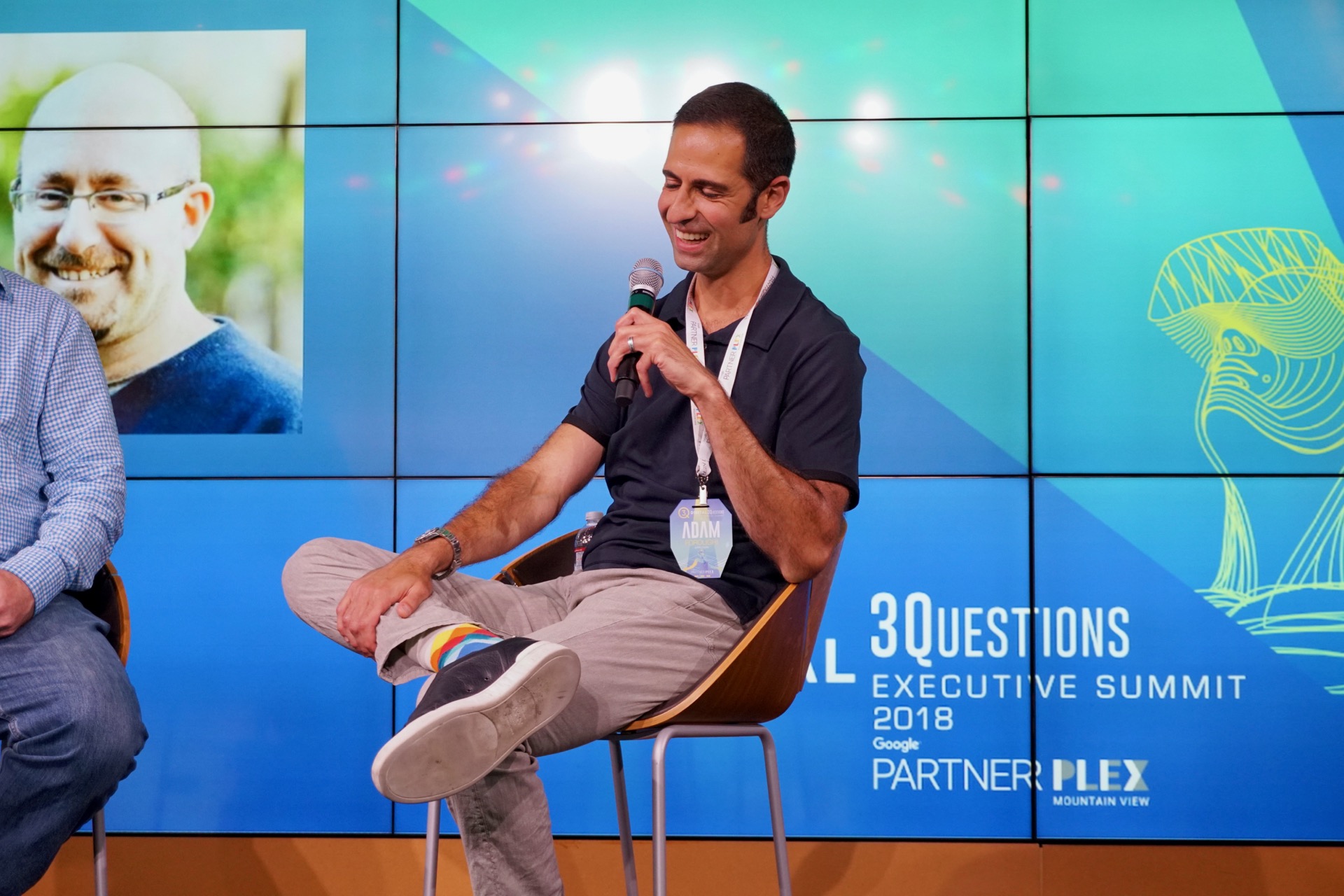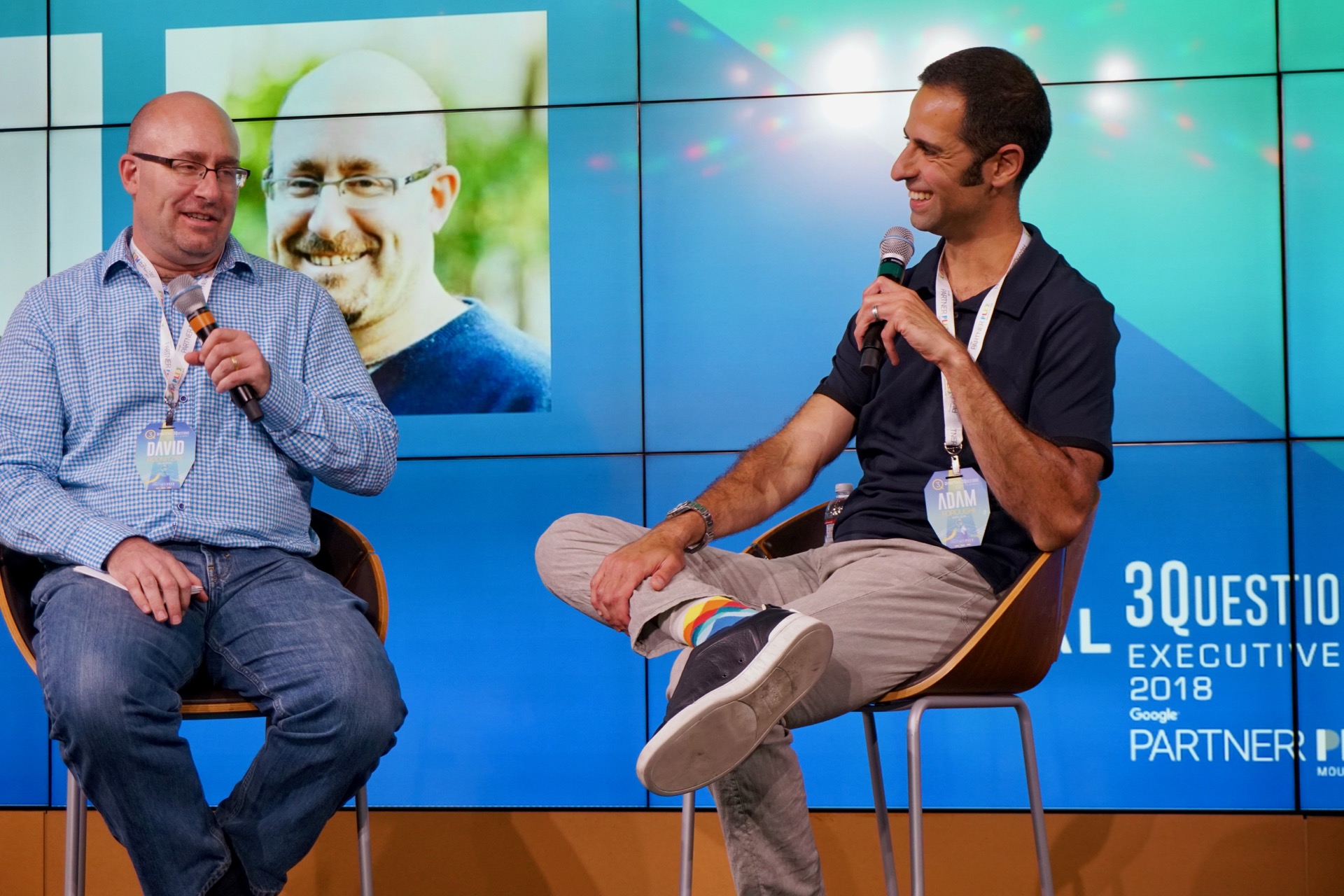Company News
AppLovin CEO Adam Foroughi talks about entrepreneurship and the future of mobile at 3Q Digital Summit
May 9, 2018

Company News

3Q Digital and Google hosted the 3Questions Executive Summit last week, which gathered the biggest thinkers in media, games, entertainment, video, fitness, and healthcare to talk about the changing technology and media landscapes. AppLovin CEO Adam Foroughi took to the stage with 3Q Digital CEO David Rodnitzky to talk about the origins of AppLovin as well as the evolving mobile ecosystem.
Rodnitzky kicked off the talk by asking a question many in the audience probably shared: Where did the name AppLovin come from? Contrary to rumor, the name AppLovin did not come from the Superbad character, McLovin.
“When I started, I invested a lot into the domain names for companies that ended up failing. When I started AppLovin, I realized that a domain name has no direct correlation to success so I didn’t waste time coming up with a good name,” says Foroughi. “I did a quick search on GoDaddy and bought the AppLovin domain for $8 and I was literally told to change the name at least once a month in the beginning. But as we grew more successful, no one mentioned it any more.”
AppLovin is unique in the startup world in that it didn’t rely on tons of venture capital to get off the ground. When the company launched in stealth in 2012, Foroughi found it tough to raise venture capital from VCs that didn’t believe in his vision.
“With [AppLovin], we got lucky because the business grew very quickly,” says Foroughi. “We went out when we launched in 2012 to go fundraise money from all the top-tier Sandhill VCs.” He ended up raising a single round of $4 million in financing from angels but never took funding again. “What I learned when I couldn’t raise any money was to have conviction about what you’re doing in the face of anyone telling you that it’s wrong.”

For many in Silicon Valley, obtaining a big round of venture funding can seem like a victory because of a VC’s portfolio of successes. “There’s a feeling in Silicon Valley that venture funding is a badge of honor,” says Rodnitzky.
But the reality is more complicated, according to Foroughi. “A lot of people believe that venture money is highly correlated with success, but they don’t realize that a lot of the top-tier venture firms have their best ideas fall into their lap,” he says.
Still, there may be a time when your company requires additional capital to grow. “Money is important, but the time to take money from VCs is when the business is growing,” says Foroughi. “I’m happy to not have taken VC funding, but there are companies that need it to scale, so there’s a time and a place for it.”
For AppLovin, success was identifying a problem in the mobile ecosystem and providing a solution. That problem was app discovery. “When we developed our own apps, we saw that we couldn’t market them, so we realized that this market was wide open,” says Foroughi.
Leaning on his own experiences with trying to market his apps, Foroughi built a platform that would help developers of all sizes get their apps in front of the right audiences. Now, six years after AppLovin’s founding, the problem of app discovery still exists. Even though tech giants like Facebook, Amazon, Google, Apple, and Microsoft dominate the conversation, there are still companies finding success by targeting a niche.
“What’s compelling to me is that the app ecosystem is so fragmented that it has enabled small developers from anywhere in the world to develop content, but still build a sizable business,” says Foroughi. “We’ve seen this story hundreds of times where a husband and wife quit their jobs to create build an app. These stories aren’t outliers.”

Although the public may never hear about these small developers when giant companies dominate the conversation, they’re finding their own success. “We may never hear about them, but these folks are fundamentally building a lot of wealth for themselves in a marketplace where everyone wants to talk about the biggest brands. I think that’s really cool,” says Foroughi.
“I want my daughters to grow up and be coders in high school and try to pay their own way through college,” he adds. “And if they can, I know they’ll be successful. I think it’s worth it for anyone to create content and try to market and grow it.”
Small developers can still find success in the crowded app ecosystem today, but it’ll require new strategies. More often than not, developers will have to look beyond their own borders in order to scale their businesses. And if you’re an indie game developer, there are best practices you should follow to grow your game studio.
Beyond mobile, there are emerging platforms that will change consumer behavior such as voice assistants like Amazon Alexa and Google Assistant. “A lot of the technology will shift off of mobile to some different format,” says Foroughi. “Anything that we use will be connected in some format that will send data to a company on the other side who will create some sort of automation, customization, or targeting that will change the way human beings behave over the next five to ten years.”
The biggest thing holding back emerging platforms like voice is lack of consumer trust. For smart assistants, consumers have to trust that they’re not being recorded at all times and that the third-party company controlling the data has their best interests in mind. Without this trust, these platforms won’t take off, no matter how convenient they are.
For Foroughi, success is a result of experience and believing in a vision that app developers of all sizes can succeed in a market crowded by giants. If you have a vision, stick with it, even in the face of those who don’t believe. Prove your market fit, scale your business intelligently, focus on profitability, and before long, you’ll see your company take off.